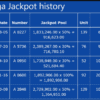Research on Gambling Behavior Raised Red Flags around Slots
Research on online gambling behavior in Great Britain commissioned by GambleAware found out that slot gaming is more likely to cause problem gambling than sports betting and is heavily skewed towards the most deprived areas.
Insight into Online Gambling Landscape
Carried out by the National Centre for Social Research (NatCen) in collaboration with Professor David Forrest and Professor Ian McHale from the University of Liverpool, Patterns of Play analyzed online gambling data between July 2018 and June 2019 from seven major operators and a total of 139,152 online gambling accounts across bingo, live and virtual casino games, poker, slots, and sports betting.
The research sought to provide an insight into the online gambling landscape by answering four questions related to the basic patterns of play, the patterns’ variance for different types of people, patterns’ variance among different products, and types of behavior associated with problem gambling or at-risk gambling.
The NatCen data showed that online bettors with the largest losses were men around 40 and coming from economically deprived areas, while women dominated online bingo with 62%, in slot games female participation represented around one-third of all, while in casino and poker, similar to online betting, women’s share was less than a quarter.
“This study offers us a globally unprecedented opportunity to understand the online gambling landscape. In contrast to betting, we see that participation and customer losses in gaming were concentrated in more deprived areas and a higher proportion of customers had losses in the thousands of pounds over the year.” Professor David Forrest, University of Liverpool
Slot Games Domination
Despite online gaming being less popular among the public than betting, spending levels per customer in gaming were much higher, while slot games dominated spending by 60.1% of all gaming activities.
“Gaming, in particular slots games, is much larger in terms of total online spending by British players and analysis of customer account data throws up more red flags indicative of potential harm from gambling.” Professor David Forrest, University of Liverpool
Gaming participation and revenue were strongly skewed towards the most deprived areas, with 29.2% of the accounts and 25.2% of operator gross gambling yield (GGY) in gaming coming from the 20% of most deprived areas, while the 20% less deprived areas accounted for just 12.9% of the players and 15% of operator GGY.
Similar to betting, online gaming was heavily dependent on very few customers, with 20% of them generating over 90% of the revenue. The top 10%, as defined by the international threshold of problem gambling, £4,568 ($5,710) delivered 79% of operator revenue.
Customers who participated in both gaming and betting proved to be much more profitable for operators as compared to single-activity accounts, generating on average over the analyzed period £601.93 ($752.41) while those involved in sports betting or gaming only accounted for £134.98 ($168.73) and £296.20 ($370.25), respectively.
On responsible gambling measures, the research found out deposit limits were used the most compared to other tools as 21.5% of the players set a limit over the one-year period.
The research revealed that 3.9% of the players received a social responsibility contact, most often in the form of an e-mail, while just 0.13% were contacted by telephone. In the cases of phone contacts, players substantially moderated their gambling activity.









